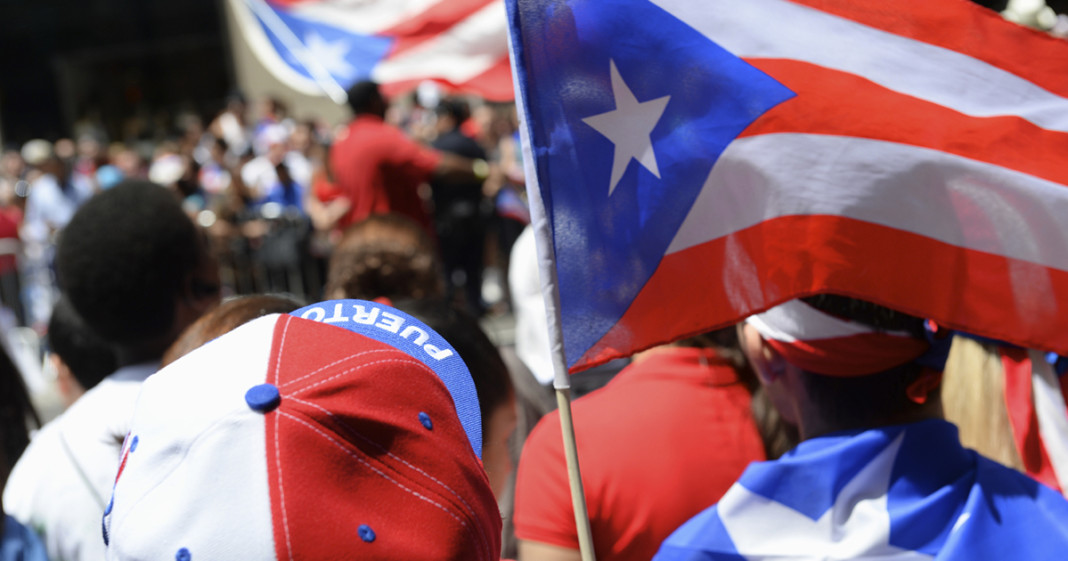The Commonwealth of Puerto Rico is in deep economic trouble, due largely to decades of well-meaning, but ultimately misguided U.S. policy – and exacerbated by the reckless behavior of financial institutions such as Santander and UBS.
One way out for the island would be bankruptcy – but because Puerto Rico is not a state, its communities are ineligible for such protection under U.S. bankruptcy law. A recent attempt to pass a bill that would have allowed Puerto Rico to file for bankruptcy was shot down by the GOP-controlled Congress last year. It goes without saying that any such bill has virtually no chance under Trump’s Administration.
Would statehood for Puerto Rico change the equation? Those supporting such a move believe so – and so does the island’s governor, Ricardo Rosselló. In a statement given to the media this past Sunday, Governor Rosselló, a member of Puerto Rico’s New Progressive Party, said:
“It will be up to this new generation of Puerto Ricans to demand and claim in Washington the end of the current improper colonial relationship, and begin a transition process to fully incorporate Puerto Rico as the next state of the Union.”
The New Progressive Party has long supported statehood. And if this week’s vote is any indication, a large majority of Puerto Ricans are on board; the vote was 97% in favor of seeking statehood.
However, less than a quarter of the island’s voters turned out. This is telling, considering that voter turnout on the island is usually in the neighborhood of 80%. One big factor in the low voter turnout was the opposition, which called for a boycott of the referendum, claiming it was “rigged.” While Governor Rosselló told his people that “the [U.S.] federal government will no longer be able to ignore the voice of the majority of the American citizens in Puerto Rico,” one of his predecessors, former governor Aníbal Acevedo Vilá, retorted that
“A 97 percent win is the kind of result you get in a one-party regime … Washington will laugh in their faces.”
Indeed, it is ultimately up to Congress to determine whether or not Puerto Rico will be granted statehood – and what a GOP-controlled Congress would do for the island given its current economic circumstances is anyone’s guess. While there are upsides to statehood, there are a few drawbacks as well. Among the benefits, statehood would allow Puerto Ricans to participate in Presidential elections and have representation in Congress. Workers would benefit from the higher U.S. federal minimum wage as well. It would also make the island eligible for bankruptcy protection.
On the downside, Puerto Ricans would lose their exemption from paying federal income taxes on wages and salaries earned at home. This could bring an estimated $5.6 billion into the U.S. treasury, according to the Government Accountability Office – more than half of which could come from corporate taxes. That could be a problem in a territory where the unemployment rate is around 15%; currently, a sizable number of U.S. companies operate in Puerto Rico as “controlled foreign corporations,” and thus enjoy tax benefits that would disappear should statehood be granted – and along with those benefits, as many as 75,000 jobs.
In any event, last Sunday’s vote was a non-binding resolution, so it doesn’t amount to much more than an opinion poll. Furthermore any change in Puerto Rico’s status will have to go through Congress – and the GOP Senate and House are far too busy figuring out new ways to screw over the American people to worry about America’s stepchild and its problems.




![Senator Schumer: “Single Payer [Health Care] is On The Table”](https://sandbox.trofire.com/wp-content/uploads/2017/07/Universal-Healthcare-218x150.jpg)